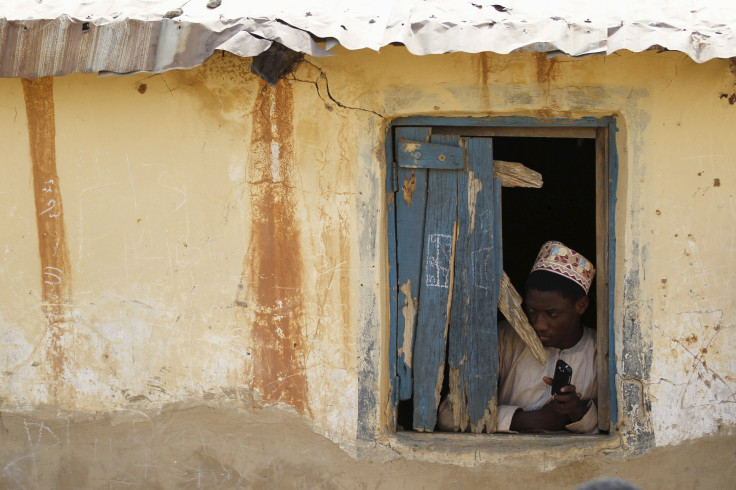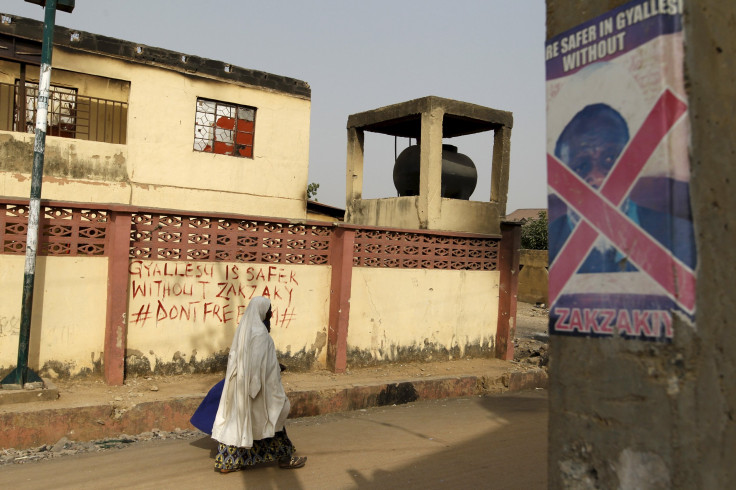Following Revelation Of Nigeria’s Shiite Muslim Mass Graves, Amnesty International Calls For Independent Investigation

Rights group Amnesty International is calling for an independent investigation into mass graves in northern Nigeria, where the bodies of hundreds of Shiite Muslims were allegedly buried in secret following deadly clashes with the Nigerian military. A local government official acknowledged the killings Monday during an ongoing inquiry into the raids, which took place in Kaduna state in December.
“The horrific revelation by the Kaduna state government that hundreds of Shiites were gunned down and dumped in mass graves is an important first step to bringing all those suspected of criminal responsibility for this atrocity to trial,” said M.K. Ibrahim, country director for Amnesty International Nigeria. “It is now imperative that the mass grave sites are protected in order that a full independent forensic investigation can begin. The bodies must be exhumed and Nigerian authorities should immediately reveal the whereabouts of those held in unacknowledged detention and either charge or release them.”
Nigerian forces arrested Islamic Movement of Nigeria leader Ibrahim Zakzaky in early-morning raids on his house and other buildings affiliated with the minority Shiite Muslim sect in the northern city of Zaria on Dec. 13. The military raids occurred a day after sect members tried to block a convoy carrying Nigerian army chief of staff Lt. Col. Tukur Buratai to an inauguration ceremony for recruits in Zaria, witnesses told Reuters at the time. Zakzaky’s deputy and the group’s chief spokesman were among those reportedly killed in the bloody clash.
A spokesman for the Nigerian army, Col. Sani Usman, accused Islamic Movement of Nigeria members of trying to assassinate Buratai and said soldiers were forced to shoot in defense when the group’s members refused to move out of the convoy’s way.
"The sect, numbering hundreds and carrying dangerous weapons, barricaded the roads with bonfires, heavy stones and tires. They refused all entreaties to disperse and then started firing and pelting the convoy with dangerous objects,” Usman told Reuters.

Zakzaky denied the accusations prior to his arrest and said the altercation occurred as members of his sect were conducting their annual “Changing of the Flag” ritual to mark the start of Maulud, the birth month of the Prophet Muhammad, at their headquarters in Zaria.
"We learnt that [Buratai] was visiting ... newly graduated recruits and that coincided with our day of Changing of Flags, which we do annually. We had no intention of doing anything, as [was] claimed by the soldiers," Zakzaky told Reuters at the time.
Secretary to the Kaduna state government Balarabe Lawal told an inquiry Monday that 347 Shiites were killed during the December raids in Zaria. He said the victims, who were youth members of the Islamic Movement of Nigeria, were secretly dumped in mass grave in Mando under the joint supervision of the Kaduna state government and the Nigerian army, according to Nigerian newspaper Premium Times. Islamic Movement of Nigeria spokesman Ibrahim Musa told Newsweek on Wednesday that the burial took place “in the middle of the night” and the victims’ families were not informed beforehand.
After the December raids, bulldozers sent by the Kaduna state government have reportedly levelled Shiite shrines, a cemetery and offices in Zaria. The Islamic Movement of Nigeria is generally viewed as peaceful, but a similar incident between the Shiite sect and the Nigerian military occurred in 2013 during a procession. Zakzaky told Reuters that 30 supporters and three of his children were killed. Nigerian President Muhammadu Buhari has accused the movement, which reportedly runs its own education system in Zaria, of creating a “state within a state,” according to Premium Times.
Sectarian tensions have been on the rise since the clashes and are dividing a region already grappling with Boko Haram's Islamic insurgency. Nigeria has one of the largest Muslim populations in West Africa and a majority of them are Sunni, including the Boko Haram militant group that has killed thousands of people in northeast Nigeria since 2009.
© Copyright IBTimes 2024. All rights reserved.











